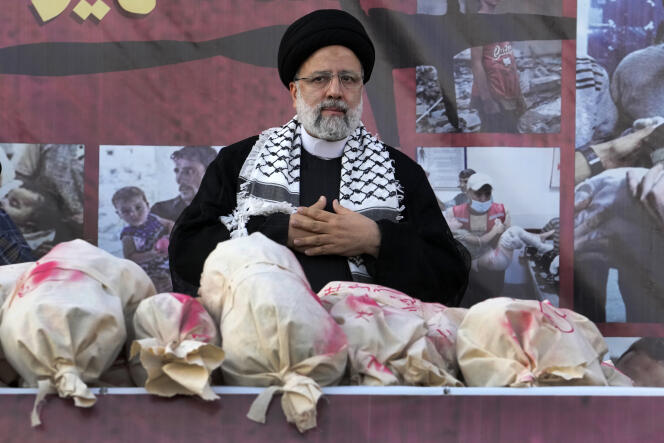


If you blow too hard on the embers, don't you risk of getting burnt in a headwind? Faced with what they perceive as an unprecedented weakness on Israel's side, the leaders of the Islamic Republic of Iran are walking a tightrope: they want to emphasize this weakness while avoiding a direct armed confrontation with the Jewish state.
Following the Hamas attack in Israel, Iran's Supreme Leader, Ali Khamenei, denied on Tuesday, October 10 any involvement by the Islamic Republic in Hamas's unprecedented attack, but warned that Israeli strikes against Gaza would not go unanswered. On October 17, his remarks intensified: "No one will be able to stop resistance forces," he thundered, as the war escalated and the Israelis threatened Gaza with a ground offensive.
In the space of a few days, the Iranian rhetoric has gone from the defensive to an explicit threat: "If the crimes of the Zionist regime continue, Muslims and the resistance forces will lose their patience," insisted Khamenei. "No one should expect" that certain parties like Iran can "prevent the resistance forces" from taking action, he added. For Tehran, the task now is to dissuade Israel from launching a ground assault on the Gaza Strip and destroying Hamas and Islamic Jihad, two groups in which it has invested militarily and politically for years.
On October 16, Iranian Foreign Minister Hossein Amir-Abdollahian warned of an "expansion of war fronts" should Israeli forces continue their assault on Palestinian territory. "The resistance front is capable of waging a long-term war with the enemy [Israel]," he said from Tehran, returning from a regional tour of Lebanon, Syria, Qatar and Iraq. "We don't give orders to the resistance forces. They make their own decisions," he added.
By "resistance front," or "axis of resistance," Amir-Abdollahian was referring to the spider's web of armed groups that the Islamic Republic has, in a strategy of dissuasion from the weak to the strong, patiently woven for three decades around its Israeli enemy and American positions in the Middle East. These include Lebanese Hezbollah, Yemen's Houthi rebels, units of Iraq's Popular Mobilization Forces − a network of militias originally mobilized to fight the Islamic State organization − as well as the Afghan Fatemiyoun and Pakistani Zeynabiyoun divisions of the Revolutionary Guard Corps, Tehran's ideological army, a "foreign legion" that has regularly been deployed by Iran to support the regime of Syria's Bashar al-Assad. On October 12, the Israeli air force carried out strikes on the international airports of Damascus and Aleppo, allegedly to disrupt Iranian arms deliveries to Syria and Lebanon.
You have 59.32% of this article left to read. The rest is for subscribers only.
